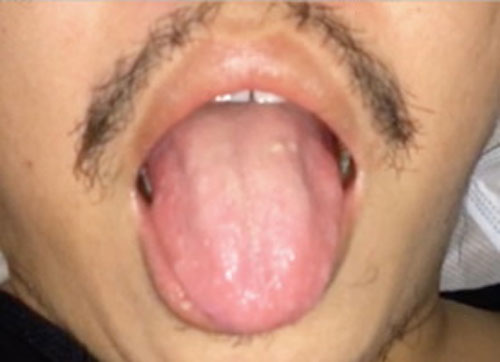Daijiworld Media Network - New Delhi
New Delhi, Oct 28: Scientists have discovered that MRI scans of the tongue could become a powerful tool for the early detection and monitoring of Motor Neurone Disease (MND), also known as Amyotrophic Lateral Sclerosis (ALS), according to a new study from the University of Queensland, Australia.
The researchers found that individuals living with MND who struggle with speech or swallowing difficulties tend to have smaller tongue muscles, suggesting a potential early biomarker for the neurodegenerative disease.
“There are eight interconnected muscles in the tongue, each playing a vital role in eating, swallowing, and speaking. In MND, these muscles — like many others — progressively weaken and waste away,” said Dr Thomas Shaw from the university’s School of Electrical Engineering and Computer Science.

He explained that identifying these changes early could give patients timely access to clinical interventions and trials, improving disease management and outcomes.
Studying the tongue muscles in living patients has traditionally been challenging and invasive, but the Queensland team analyzed over 200 historical MRI scans, including those of people with MND, to overcome this hurdle.
“By combining AI-assisted analysis with advanced imaging, we accurately measured tongue muscle volume and shape,” Shaw said. “The comparisons revealed clear differences between those with MND and healthy individuals.”
The findings, published in the journal Computers in Biology and Medicine, also reaffirmed earlier research showing that people whose MND symptoms begin in the mouth, throat, or neck muscles generally experience shorter survival times than those whose symptoms start in the limbs.
Dr Brooke-Mai Whelan, a speech pathologist from the School of Health and Rehabilitation Sciences, emphasized the tongue’s complexity, noting that it performs thousands of coordinated movements daily, which often go unnoticed until they begin to deteriorate.
“Understanding which specific tongue muscles weaken first can help us design compensatory strategies — such as modifying speech patterns to rely on unaffected muscle groups,” Whelan said.
The study highlights the promise of AI-driven MRI analysis in transforming how clinicians diagnose and track neurodegenerative diseases like MND — potentially enabling earlier intervention and better quality of life for patients.